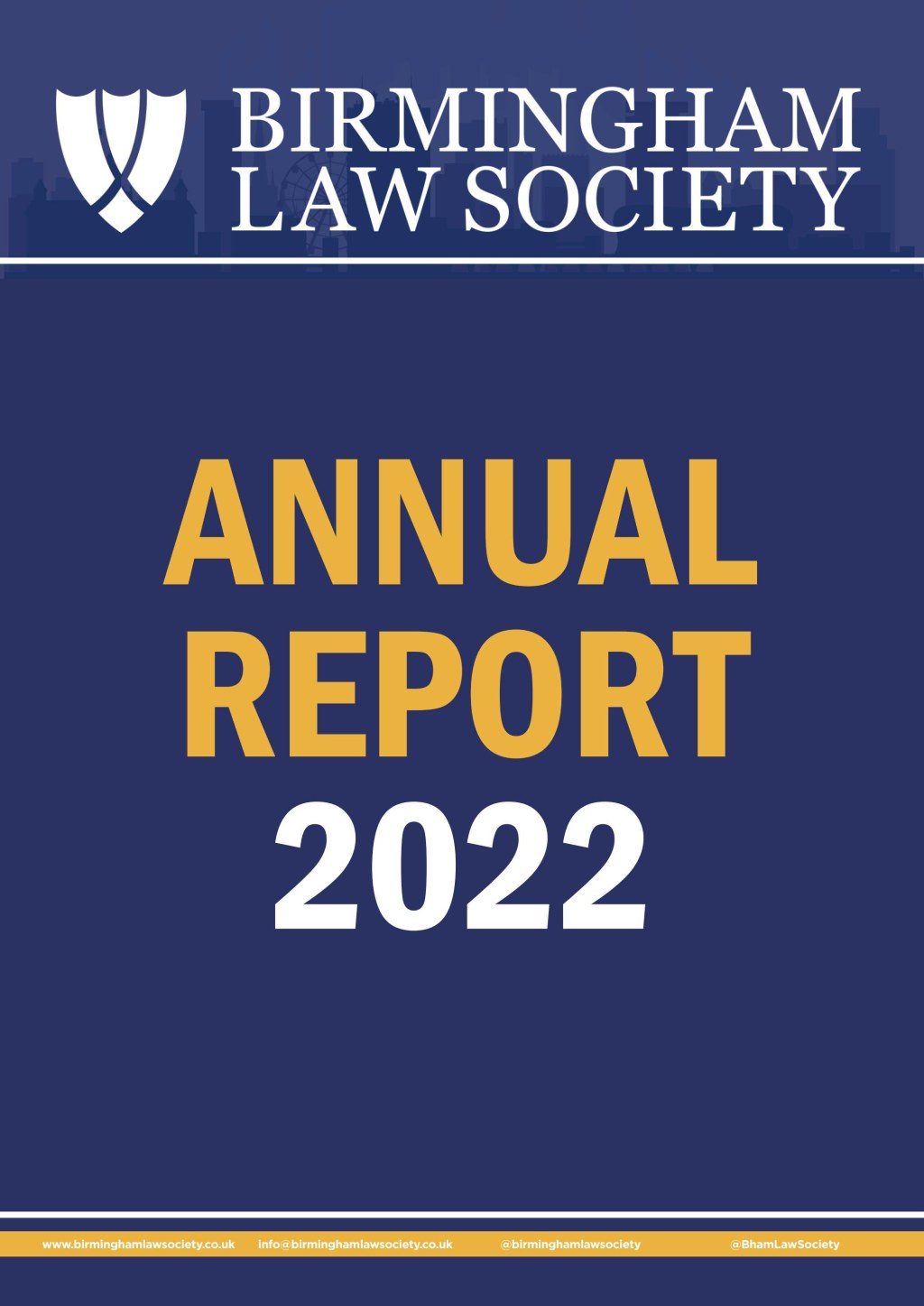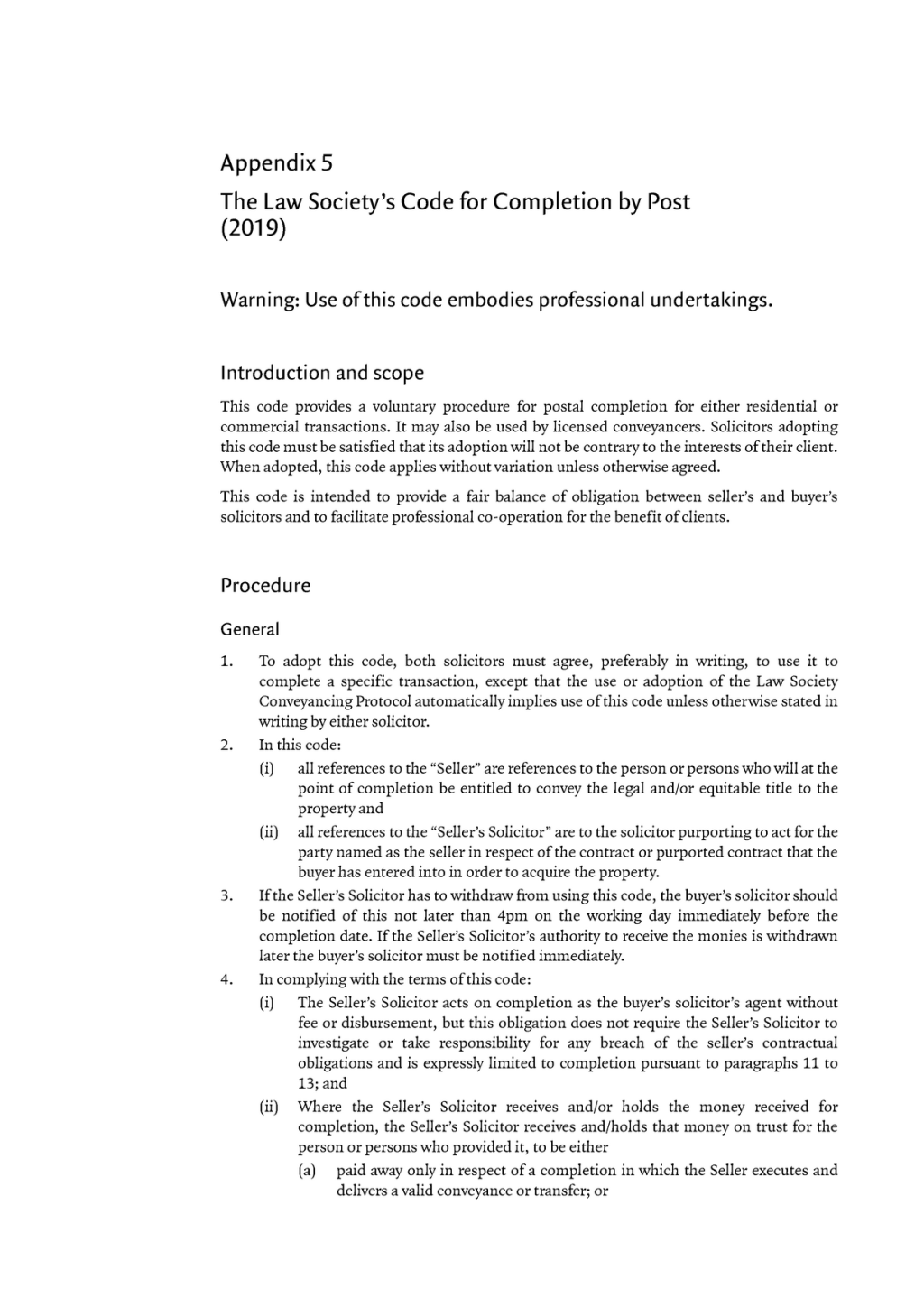Unlock The Future: Law Society 2019 Code For Completion By Post – Take Action Now!
Law Society 2019 Code for Completion by Post
Introduction
Dear Readers,
3 Picture Gallery: Unlock The Future: Law Society 2019 Code For Completion By Post – Take Action Now!



Welcome to our comprehensive guide on the Law Society 2019 Code for Completion by Post. In this article, we will delve into the details of this code and its implications for the legal profession. Completion by post refers to the process of exchanging documents and funds between parties involved in a transaction through postal services, without the need for physical meetings. This method has gained popularity in recent years due to its convenience and efficiency. Let’s explore the key aspects of the Law Society 2019 Code for Completion by Post and how it affects legal practitioners and their clients.
Overview

Image Source: isu.pub
The Law Society 2019 Code for Completion by Post sets out guidelines and best practices for solicitors and conveyancers when conducting property transactions remotely. It provides a framework to ensure that transactions are carried out securely, efficiently, and in accordance with legal requirements. The code addresses various aspects including identification checks, verification of signatures, the transfer of funds, and the exchange of documents. Compliance with this code is crucial to maintain professional standards and protect the interests of all parties involved.
What is the Law Society 2019 Code for Completion by Post? 📃
The Law Society 2019 Code for Completion by Post is a set of guidelines that aim to regulate property transactions conducted remotely through postal services. It outlines the responsibilities of solicitors and conveyancers in ensuring the smooth execution of such transactions while safeguarding the interests of their clients. These guidelines cover important aspects such as identity verification, the secure transfer of funds, and the exchange of legal documents. The code promotes transparency, efficiency, and security in completion by post transactions.
Identity Verification 🔍
Under the Law Society 2019 Code for Completion by Post, solicitors and conveyancers must undertake rigorous identity verification procedures to ensure that they are dealing with the correct individuals. This involves conducting thorough checks, such as verifying original identification documents, obtaining proof of address, and conducting electronic verification where necessary. By adhering to these procedures, practitioners can mitigate the risk of fraudulent transactions and protect their clients’ interests.
Secure Transfer of Funds 💰

Image Source: isu.pub
One of the key concerns in completion by post transactions is the secure transfer of funds between parties. The Law Society 2019 Code for Completion by Post emphasizes the importance of using secure methods, such as electronic bank transfers, to facilitate the transfer of funds. Solicitors and conveyancers must ensure that the appropriate safeguards are in place to protect against unauthorized access and fraud. By following these guidelines, practitioners can instill confidence in their clients and maintain the integrity of the transaction process.
Exchange of Legal Documents 📑
Effective communication and the secure exchange of legal documents are vital in completion by post transactions. The Law Society 2019 Code for Completion by Post outlines the procedures for the efficient exchange of documents, such as contracts and transfer deeds. It highlights the need for solicitors and conveyancers to maintain accurate records, use secure methods of transmission, and ensure that all parties have access to the necessary documentation. These measures help prevent delays, disputes, and ensure the smooth completion of the transaction.
Who Does the Law Society 2019 Code for Completion by Post Apply to? 🏢

Image Source: cloudfront.net
The Law Society 2019 Code for Completion by Post applies to solicitors and conveyancers involved in property transactions in the United Kingdom. It is relevant to both residential and commercial transactions. Compliance with this code is mandatory for practitioners who choose to engage in completion by post transactions. By adhering to these guidelines, solicitors and conveyancers demonstrate their commitment to maintaining professional standards and safeguarding their clients’ interests.
When Can the Law Society 2019 Code for Completion by Post Be Used? ⌛
The Law Society 2019 Code for Completion by Post can be used whenever solicitors and conveyancers opt for remote property transactions. This method offers flexibility and convenience, allowing parties to complete transactions without the need for physical meetings. However, it is important to note that the code should only be utilized when it is safe, practical, and in compliance with legal and regulatory requirements. Practitioners should assess each transaction on a case-by-case basis to determine the suitability of completion by post.
Where Can the Law Society 2019 Code for Completion by Post Be Applied? 🌎
The Law Society 2019 Code for Completion by Post can be applied in property transactions across the United Kingdom. Whether the property is located in England, Scotland, Wales, or Northern Ireland, solicitors and conveyancers can utilize this code to conduct completion by post transactions. It offers a standardized approach that ensures consistency and compliance across different regions. However, practitioners must always be aware of any regional variations or additional requirements that may apply in specific jurisdictions.
Why Choose the Law Society 2019 Code for Completion by Post? ❓
The Law Society 2019 Code for Completion by Post provides a reliable framework for solicitors and conveyancers to conduct property transactions remotely. By following this code, practitioners can ensure that transactions are carried out securely, efficiently, and in compliance with legal requirements. The code promotes transparency, reduces the risk of fraud, and streamlines the completion process. It offers the convenience of remote transactions while maintaining the highest professional standards.
How to Implement the Law Society 2019 Code for Completion by Post? 📋
Implementing the Law Society 2019 Code for Completion by Post requires solicitors and conveyancers to familiarize themselves with the guidelines and incorporate them into their practice. This involves conducting thorough identity verification checks, utilizing secure methods for fund transfers, and establishing efficient channels for the exchange of legal documents. It is crucial to stay updated with any amendments or updates to the code to ensure ongoing compliance. Practitioners can also seek guidance and support from professional bodies and legal experts to ensure they adhere to the code effectively.
Advantages and Disadvantages of the Law Society 2019 Code for Completion by Post
Advantages:
1. Convenience: Completion by post provides a convenient alternative to physical meetings, saving time and effort for all parties involved.
2. Efficiency: By utilizing postal services, transactions can be completed quickly and efficiently, reducing delays and streamlining the process.
3. Flexibility: Completion by post allows parties to engage in transactions regardless of their geographical location, enhancing accessibility and expanding opportunities.
4. Reduced Costs: Remote transactions eliminate the need for travel and physical meetings, resulting in cost savings for clients.
5. Security: The Law Society 2019 Code for Completion by Post sets out guidelines to ensure secure transactions, minimizing the risk of fraud and unauthorized access to sensitive information.
Disadvantages:
1. Lack of Face-to-Face Interaction: Completion by post may lack the personal touch and face-to-face communication that some individuals prefer during important transactions.
2. Technical Challenges: Remote transactions rely on technology and electronic communication, which may pose challenges for individuals who are not familiar or comfortable with such methods.
3. Potential Delays: Although completion by post offers efficiency, delays may occur due to postal service issues or the need for additional document verification.
4. Limited Scope: Not all transactions may be suitable for completion by post, especially those involving complex legal matters that require extensive discussion and negotiation.
5. Regional Variations: Different regions may have specific requirements or regulations that need to be considered when conducting completion by post transactions.
Frequently Asked Questions (FAQs) 📝
1. Is the Law Society 2019 Code for Completion by Post legally binding?
No, the Law Society 2019 Code for Completion by Post is not legally binding. However, compliance with the code is essential to maintain professional standards and protect the interests of all parties involved.
2. Can completion by post be used for all types of property transactions?
Yes, completion by post can be used for both residential and commercial property transactions. However, it is important to assess each transaction on a case-by-case basis to determine its suitability.
3. Are there any additional requirements for completion by post in Scotland?
Yes, in Scotland, completion by post requires adherence to specific regulations and procedures outlined by the Law Society of Scotland. Practitioners must ensure compliance with these additional requirements.
4. Can completion by post be used for international property transactions?
Yes, completion by post can be utilized for international property transactions, provided that it is practical and complies with the laws and regulations of the respective countries involved.
5. What happens if there is a dispute in a completion by post transaction?
In the event of a dispute, parties should follow the dispute resolution procedures outlined in the contract or seek legal advice to resolve the matter.
Conclusion
In conclusion, the Law Society 2019 Code for Completion by Post offers a comprehensive framework for solicitors and conveyancers to conduct property transactions remotely. By adhering to this code, practitioners can ensure secure, efficient, and compliant completion by post transactions. While completion by post brings numerous advantages such as convenience, efficiency, and reduced costs, it is important to consider the potential disadvantages and regional variations. Therefore, it is crucial for legal professionals to stay updated with the latest developments and seek guidance when implementing completion by post in their practice.
Final Remarks
Dear Friends,
Thank you for taking the time to read our article on the Law Society 2019 Code for Completion by Post. While we have provided valuable insights into this topic, it is important to remember that laws and regulations may evolve over time. It is recommended to consult legal experts and professional bodies for the latest information and guidance specific to your jurisdiction. Should you have any further questions or require clarification, please do not hesitate to reach out to us. We wish you success in your future completion by post transactions.
This post topic: Law and Society


